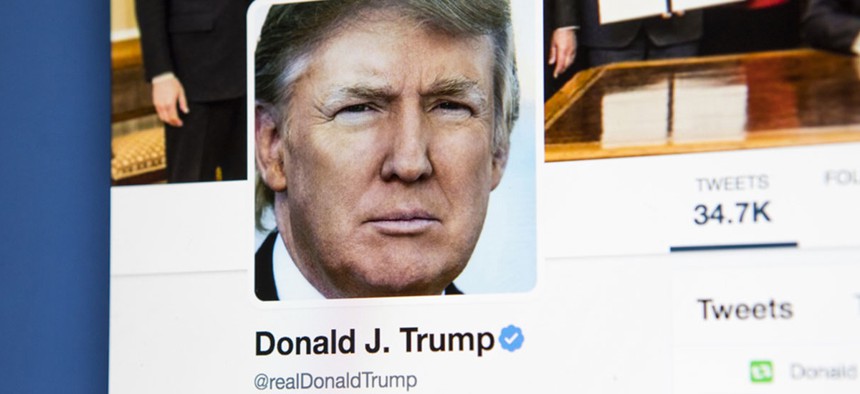In recent years, elected officials have flocked to social-media platforms to run their campaigns, stake their place on issues, and have a direct dialogue with their constituents and voters. To some, this signifies a more open and communicative approach to government. But James Madison, the Founding Father and America’s fourth president, would be appalled at how these platforms have eroded democracy, claims Jeffrey Rosen, the president and CEO of the National Constitution Center.
Madison wrote in the Federalist Papers that “passion never fails to wrest the sceptre from reason.” Rosen argues that platforms like Twitter and Facebook play directly into people’s passions, precluding the ability to think or debate reasonably about issues.
In a discussion with The Atlantic’s Jeffrey Goldberg on Monday at the Aspen Ideas Festival, which is co-hosted by the Aspen Institute and The Atlantic, Rosen outlined the core characteristics of a functioning Madisonian democracy and spoke about how social platforms are working to dismantle core components. One of these components is the importance of cooling mechanisms on popular sentiment. Madison believed that a direct democracy would inevitably result in toxic polarization and leave citizens susceptible to authoritarian rule.
“Social media has destroyed these cooling mechanisms,” Rosen said. “I can say with complete, nonpartisan virtue that Madison would be horrified by the idea of a tweeting president. He would not have followed Obama or Trump on Twitter.”
The main reason Madison would have been so appalled, Rosen argued, is that he was firmly against such direct communication between representatives and the people. Madison claimed that such a direct line was an evil to be avoided at all costs.
Rosen said that we’ve seen the problematic results of this type of direct dialogue with the public play out. The president and elected officials, in bids to garner public support and attention, will tweet out hard-line positions on issues before attempting to compromise or deliberate with their elected peers. Once their statements have been issued publicly on Twitter, it’s much harder for them to go back and renege. In Rosen’s view, Twitter has undeniably fueled polarization within our government.
But when it comes to what to do about it, Rosen said he doesn’t think it’s up to the government to reign these platforms in. And though he supports Facebook’s efforts to recalibrate their algorithm to stifle the spread of fake or overly biased news, he doesn’t think the platforms themselves will solve this problem either.
Ultimately Rosen said that until the public is willing to educate itself on civics and democracy, the problem will continue to get worse. “It’s up to people to educate themselves,” he said. “Use this remarkable tool of the internet. Read the Federalist Papers, read about Athenian politics. The internet could be a Madisonian dream if we had the discipline to use it properly. Or we can watch cat videos.”







